
Nick Ferrari 7am - 10am
17 March 2021, 05:22 | Updated: 17 March 2021, 09:50
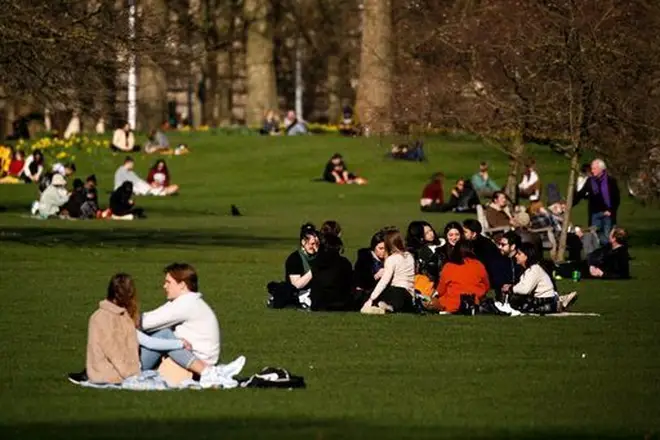
All four UK nations have set out plans to gradually ease lockdown restrictions over the coming months - but how does the 'roadmap out of lockdown' differ in England, Scotland, Wales and Northern Ireland?
The four countries went into lockdown after Christmas, following months of relaxed rules which resulting in climbing infection rates.
It is the third time people in the UK have been instructed to "Stay At Home" to save lives and protect the NHS.
But how are England, Scotland, Wales and Northern Ireland coming out of lockdown? Are they doing it alone or together? What are the key differences?

Exemptions must be made for protests amid Covid-19 lockdown
Lockdown restrictions remain largely similar in Scotland, Wales and Northern Ireland at present, with people told to stay at home or stay local while exercising.
But in England, Prime Minister Boris Johnson's 'Roadmap to Freedom' announced at the end of February has already begun, with the 'stay at home' order lifted on March 6 and all schools reopened on March 8.
Unlimited outdoor exercise in the country is now allowed, as well as regular visits to care homes for one person.

"Small percentage" of pubs can open in PM's lockdown roadmap
As the 'roadmap' continues, restrictions will lift gradually every few weeks until everything, including nightclubs, will be allowed to reopen on June 21 at the earliest.
At the end of March, concluding Step 1 of the plan, up to six people or two households will be allowed to meet outdoors, while organised sports and outdoor sports facilities will also be allowed to reopen.
In Step 2 - activated after five weeks of Step 1 or no earlier than April 12 - all non-essential retail will be able to reopen, as well as outdoor hospitality, gyms and indoors leisure facilities, hairdressers and personal care services.
Outdoor attractions including zoos, theme parks and drive-thru cinemas will also be allowed to welcome visitors once again.
Drive lessons and tests can also resume.
In Step 3 - activated after five weeks of Step 2 or no earlier than May 17 - indoor hospitality will reopen with no curfew or a requirement to serve a substantial meal alongside alcohol.
The number of people allowed to meet outdoors will be increased to 30 person limit outdoors and the 'rule of six' will be reintroduced indoors.
Any remaining outdoor entertainment venues, such as outdoor theatres and cinemas, as well as indoor museums, cinemas and children’s play areas.
Some large events, including conferences, theatre and concert performances and sports events can also go ahead, as well as any significant life events, for up to 30 people.
Finally, in Step 4 - activated after five weeks of Step 3 or no earlier than June 21 - all legal limits on social contact will be removed, allowing people to meet indoors for any reason.
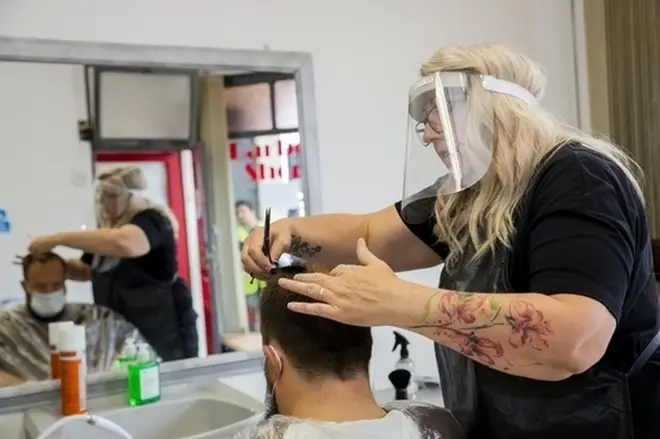
The easing of restrictions in Scotland will begin later but quickly catch up with England, with the country's 'stay at home' order due to be lifted on April 2 and public health messaging shifting to 'stay local' instead.
Contact sports and a phased re-opening of non-essential retail will begin on April 5, while hairdressers will be able to reopen on April 5 - a week earlier than plans in England.
On April 26, outdoor hospitality including cafes, restaurants and bars for groups of up to six from three households will be allowed to resume.
Some "limited" indoor hospitality could also be possible, First Minister Nicola Sturgeon said on Tuesday, but without alcohol and in smaller groups of four from two households.
Travel restrictions across the country will also be dropped on the same day if Covid numbers have fallen to more comfortable levels.
From May 17, up to four people from two households can socialise indoors in a private home or public space, and all areas then in level four - the highest tier - will be dropped to level three.
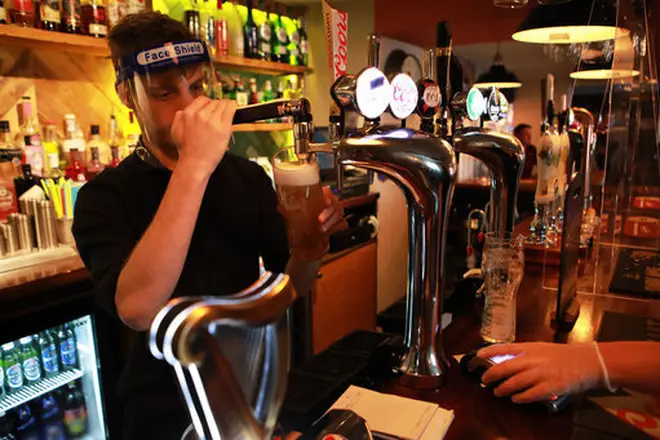
The Welsh Government is yet to announce a set plan similar to England and Scotland but has set out short-term easing of restrictions following the removal of its 'stay at home' order on March 13.
Since last weekend, four people from two households are now able to meet outdoors again to socialise, including in gardens - two weeks ahead of England's plans.
Ministers have promised the current 'Coronavirus Control Plan' of tier levels announced in December will be updated this week.
The plan contains four 'Alert Levels' but days after publication every area in Wales entered the highest tier (Alert Level 4) as the country went back into lockdown.
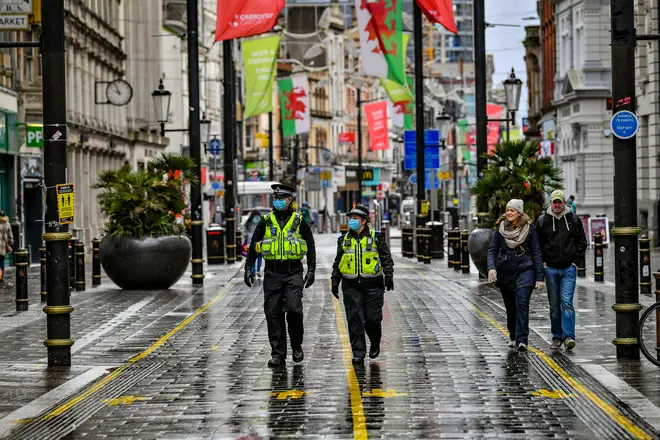
First Minister Arlene Foster announced on Tuesday that Northern Ireland can start gradually lifting its restrictions with its 'Executive's Pathway to Recovery' strategy.
From April 1, up to six people from no more than two households will be able to meet outdoors in a private garden, while ten people from no more than two households will be able to participate in outdoor sporting activities.
Golf courses will also reopen and click-and-collect purchases will be allowed from garden centres and plant nurseries, but the crucial 'stay at home' message will remain in place.
From April 12, click-and-collect will be available once again at all non-essential retailers and up to 10 people from no more than two households can meet outdoors, including in a private garden.
The 'stay at home' requirement will also lifts and be replaced by a 'stay local' message as in England and Scotland.
Primary pupils in years P1 to P3 are already back in classes and secondary school children in year groups 12 to 14 are due back on Monday March 22, as well as all remaining primary school pupils.
The final cohort, secondary pupils in years eight to 11, will go back to classes on April 12 after the Easter holidays.
The strategy was agreed earlier this month and includes five steps along nine pathways - retail; hospitality; education and young people; work; culture, heritage and entertainment; sports and leisure; travel and tourism; worship and ceremonies; and home and community.
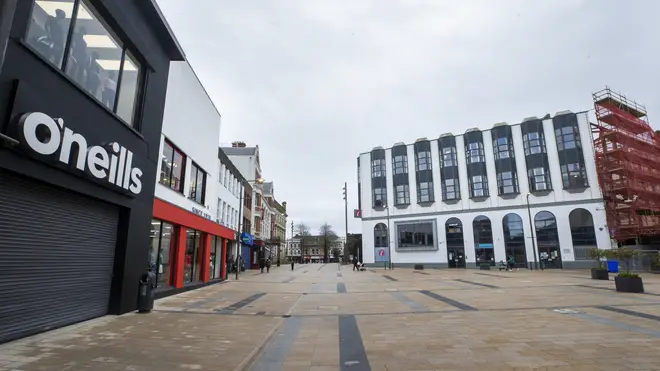
Any and all relaxations will be conditional based on four tests, with the Government set to examine the data at each stage before unlocking further.
Ministers will also assess the success of the vaccine rollout, evidence of vaccine efficacy, new variants and infection rates before proceeding to the next step.
Similar requirements are expected to be followed in the other three nations but the Governments have no set out as detailed criteria as England.